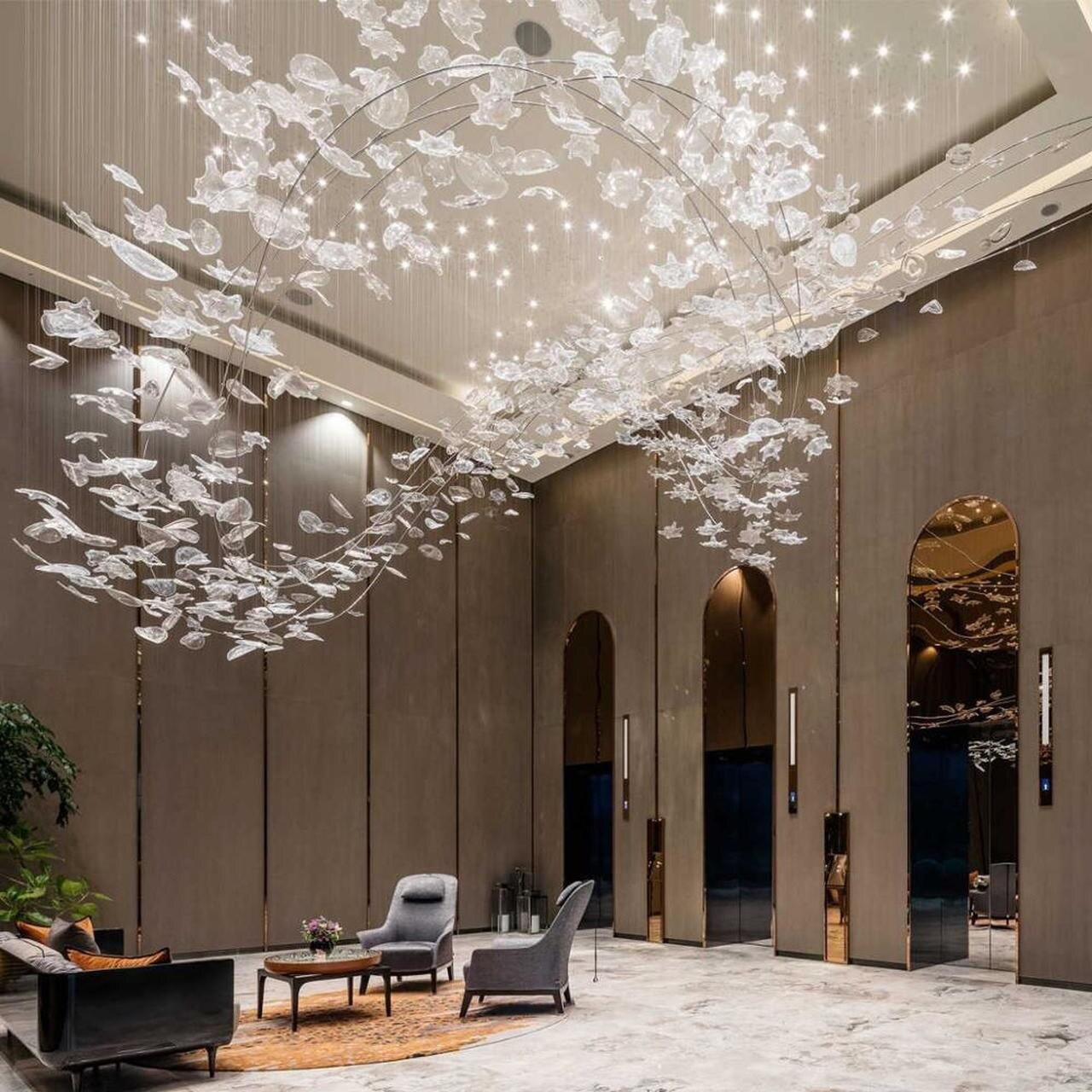The Journey of Lemontree Hotels: A Visionary Approach
Posted by Bianca Rodaka - Interior Designer on 8th Oct 2024
Introduction: A Visionary Start
In the vast landscape of global hospitality, few brands stand out as much as Lemontree Hotels. It has become a symbol of modernity, innovation, and an unparalleled commitment to offering memorable guest experiences. What began with a singular idea to cater to the mid-market segment has evolved into a hospitality giant, pushing boundaries in architecture, technology, and guest service. As we reflect on the company’s remarkable journey, it becomes evident that Lemontree Hotels is more than just a hotel chain; it’s an architectural and cultural phenomenon that reshaped the hospitality industry.
The Foundational Years: Establishing a Brand Identity
The inception of Lemontree Hotels in the early 2000s was marked by the founders’ clear vision of transforming the mid-scale hotel experience. They identified a gap in the market: affordable hotels that didn't compromise on comfort, aesthetics, or service. This bold and innovative thinking laid the groundwork for what would become one of the most recognizable hospitality brands in the world.
During the foundational phase, meticulous attention was paid to every aspect of the hotel design and service. The location of each hotel was carefully chosen, ensuring proximity to business hubs and tourism centers while also blending in with local aesthetics. Lemontree Hotels were designed to provide an experience that went beyond just offering a place to sleep. Each property sought to strike a balance between elegance and functionality, creating welcoming spaces that echoed the warmth of home while also delivering high-end amenities. This attention to detail became synonymous with the Lemontree brand, and over time, the company garnered a loyal customer base.
Architectural Presence: Carving Unique Spaces
Architecture played a pivotal role in defining Lemontree Hotels' identity. Understanding that first impressions matter, the brand made it a priority to ensure its properties were not only functional but visually captivating. This focus on architectural excellence is what set Lemontree apart from other mid-market hotels. Every hotel was designed to reflect a seamless integration of modern architectural trends with local cultural elements, creating a fusion that was both aesthetically pleasing and practical.
For instance, the architectural teams at Lemontree collaborated with local artists to integrate region-specific art and décor into each hotel. Whether it was through custom murals in the lobby or hand-crafted sculptures in the courtyard, each space reflected the unique culture of the surrounding area. These efforts helped to elevate the guest experience, making their stay not just comfortable but culturally enriching. Moreover, sustainable design elements, such as energy-efficient windows, solar panels, and water conservation systems, became integral to Lemontree's architectural ethos. Their commitment to blending sustainability with architectural beauty earned them both critical acclaim and guest loyalty.
Strategic Expansion: The Network Grows
The expansion of Lemontree Hotels was as carefully planned as the design of its individual properties. Recognizing early on that growth wasn’t just about adding more locations, the company embarked on a strategic expansion campaign aimed at both urban centers and off-the-beaten-path locales. By doing so, Lemontree ensured it had a presence in major commercial cities and emerging tourist hotspots, providing options for both business and leisure travelers.
This approach also allowed the company to diversify its portfolio. In bustling cities, Lemontree Hotels became go-to choices for business travelers seeking affordability without sacrificing quality. On the other hand, in more serene, remote locations, the brand became known for offering peaceful retreats that allowed guests to unwind and experience local culture in an authentic setting. In each new region they entered, Lemontree Hotels engaged with the local community to provide job opportunities, thus ensuring the brand’s growth positively impacted local economies. This holistic, community-centered approach helped solidify Lemontree's reputation as not only a successful business but a responsible corporate entity.
Innovation in Hospitality: The Lemontree Edge
As the hospitality industry evolved, so too did Lemontree Hotels. Understanding the importance of staying ahead of the curve, the company invested heavily in technology and innovation. From the early adoption of digital booking systems to the implementation of AI-driven guest services, Lemontree consistently sought out ways to enhance the guest experience. Their mobile concierge apps, for instance, allowed guests to customize every aspect of their stay—from room preferences to dining options—before they even arrived at the hotel.
Additionally, the introduction of pet-friendly policies and innovative dining experiences showcased Lemontree’s ability to cater to modern travelers’ needs. Sustainability also remained a core part of Lemontree’s innovation strategy. Beyond just incorporating green technologies into their buildings, the brand developed comprehensive sustainability programs aimed at reducing waste, conserving energy, and lowering their overall carbon footprint. By being pioneers in sustainable hospitality, Lemontree Hotels appealed to eco-conscious travelers who were looking for accommodation options aligned with their values.
Weathering Challenges: Resilience and Adaptability
No company, no matter how innovative, is immune to challenges. Over the years, Lemontree Hotels faced numerous obstacles, including economic recessions, competitive pressures, and the unprecedented challenges posed by the global pandemic. Yet, through it all, the company displayed remarkable resilience. Rather than succumbing to these challenges, Lemontree adapted. During the pandemic, for example, the brand swiftly rolled out contactless check-in services, ensured rigorous sanitization protocols, and even repurposed some of its properties to offer long-term stays for people seeking safe, socially-distanced accommodations.
By focusing on operational efficiency and guest safety, Lemontree managed not only to survive these crises but to emerge stronger, with a renewed focus on innovation and guest care. Their ability to pivot quickly and make bold decisions in times of adversity has solidified their place as a leader in the hospitality industry.
The Cultural Contribution: Beyond Economics
While Lemontree Hotels' financial success is impressive, what truly sets the brand apart is its cultural impact. By engaging with local communities, providing jobs, and promoting regional arts, Lemontree has managed to create hotels that are more than just places to stay—they are cultural hubs. The brand frequently collaborates with local artists and craftsmen to host exhibitions and events, offering guests a deeper connection to the culture of the region they are visiting. This commitment to cultural immersion not only enriches the guest experience but also contributes to preserving local traditions and crafts.
Furthermore, Lemontree Hotels frequently organize community-based events and festivals, fostering strong relationships between their properties and the locales they operate in. This unique blend of economic, social, and cultural contribution underscores Lemontree Hotels' holistic approach to business and hospitality, making them not just a hotel brand but a vital part of the communities they serve.
Conclusion: A Future of Boundless Possibilities
The story of Lemontree Hotels is one of ambition, innovation, and unwavering commitment to excellence. As they continue to expand their network, push the boundaries of hospitality innovation, and embrace sustainability, Lemontree remains a brand poised for future success. With a solid foundation rooted in guest satisfaction, cultural engagement, and cutting-edge design, the future for Lemontree Hotels is one of boundless possibilities.
As the industry continues to evolve, Lemontree Hotels is well-positioned to lead the charge, ensuring that they remain not just a part of the hospitality landscape but a defining feature of it. Their journey offers inspiration for businesses and entrepreneurs alike, demonstrating that with vision, strategy, and a commitment to core values, anything is possible.




